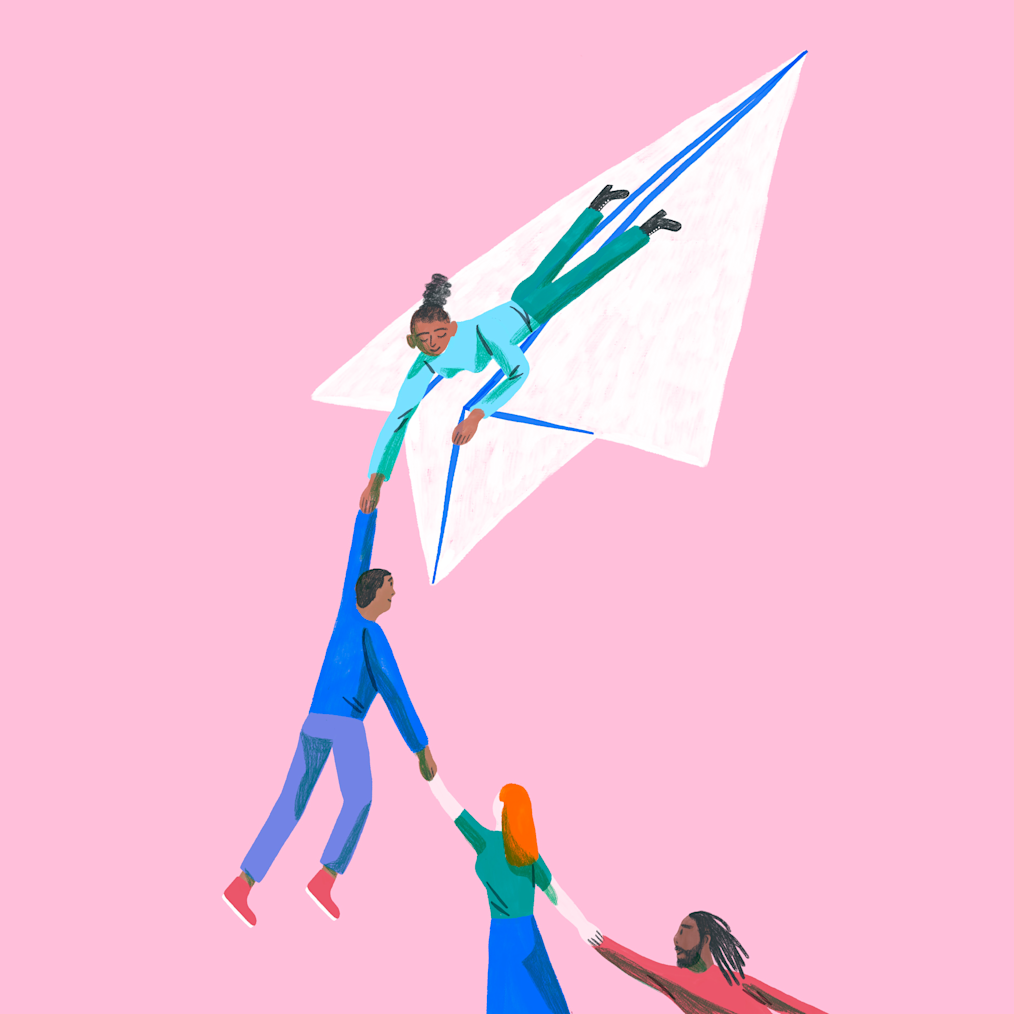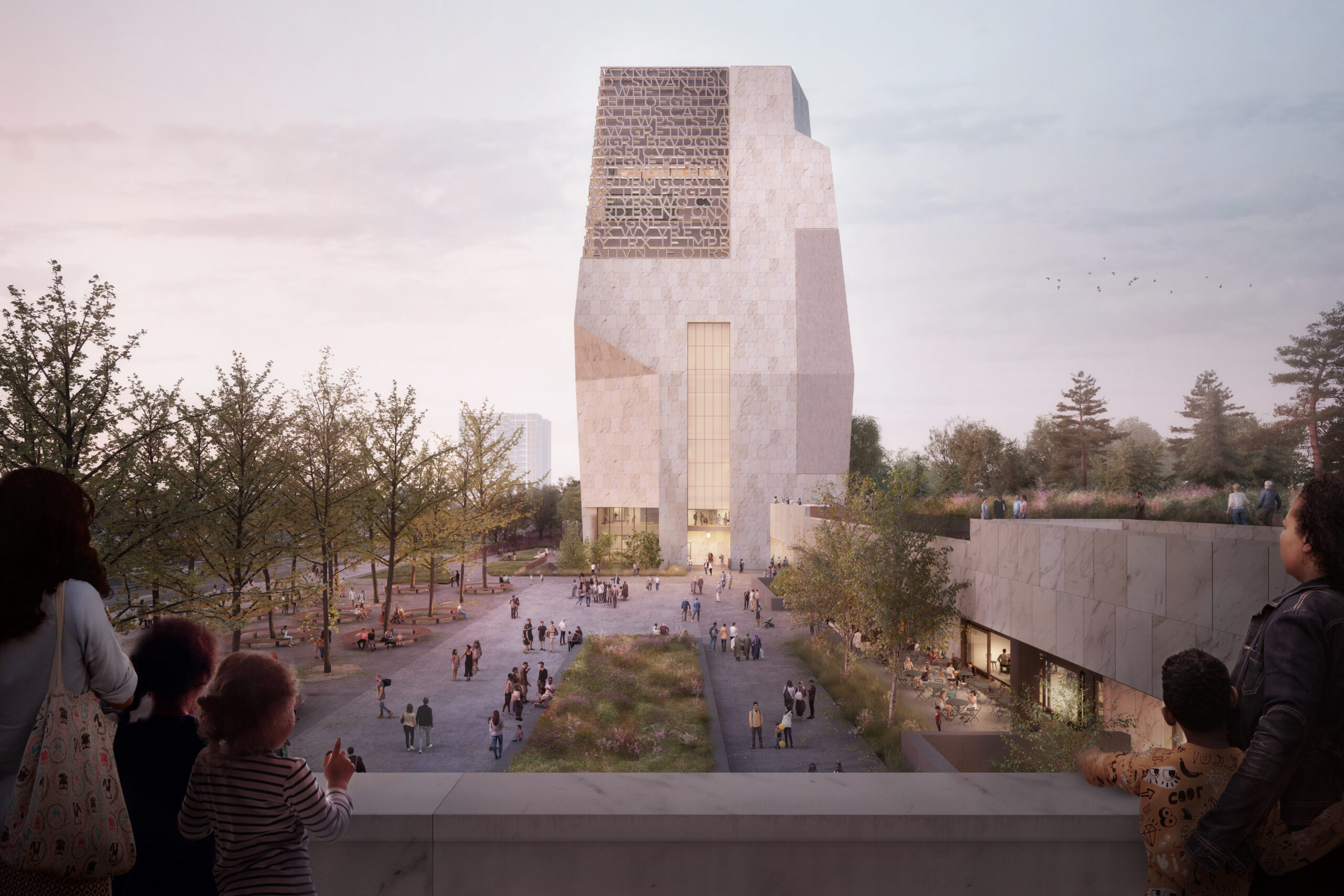How fatherhood shapes these Obama Leaders
From Chicago to Nairobi, fathers and mentors share how parenting deepened their leadership and strengthened their communities.

“ What makes you a man is not the ability to have a child — any fool can have a child. It's the courage to raise a child that makes you a father.”
–President Barack Obama
This Father’s Day, we honor the men in our Obama Foundation community, fathers, mentors, and leaders, who are shaping the future through their example. From Los Angeles to Nairobi, Singapore to Chicago, these changemakers reflect on the meaning of fatherhood: its connection to their leadership, how it’s helped them strengthen their communities, and given them hope for what’s possible. Their stories, grounded in legacy and love, are a reminder of the everyday acts of care that define true leadership.
Vondale Singleton
My Brother's Keeper
"Your pain can become your purpose."
Growing up on the South Side of Chicago, Vondale Singleton, a leader of the My Brother’s Keeper Alliance’s work in Chicago, lost his mother at 14 and faced a future shaped by adversity. But a mentor stepped in—a father figure who believed in him. Vondale’s mentor shaped his leadership philosophy: lead with empathy, be present, and set high expectations. As a father and founder of CHAMPS Male Mentoring, Vondale carries forward the lesson that success isn’t about perfection, it’s about purpose and resilience.
“That experience shaped my entire approach to leadership: I lead with empathy, presence, and high expectations, because I know firsthand that one consistent, caring adult can change the trajectory of a life.”
What gives him hope:
“I see our youth stepping up, leading with purpose, and challenging systems that once held us back. Fathers are showing up, brothers are becoming mentors, and families are building legacies. In CHAMPS Male Mentoring, I’ve watched boys who once felt invisible become voices of change. My own children are growing up with the kind of love and guidance I didn’t always have. That gives me hope—not just for tomorrow, but for right now.”
Why he's most excited about the Obama Presidential Center:
“I’m most excited to stand in that space with my family, especially my son, and know that this Center was built with us in mind. President Obama chose to build it on the South Side, where he found his voice. I can’t wait to walk through exhibits that reflect our stories and triumphs—and to bring MBK Chicago so they can see that their potential has no limits. That building will be a living symbol of what’s possible when hope and action converge.”
Timothy Low
2019 Asia-Pacific Leader
“I’ve realized what’s really important.”
Fatherhood changed Timothy’s leadership style: less control, more intention.
“Everyone said they sensed a shift in my leadership since becoming a dad… I’ve realized this is evolution—becoming more empathetic and intentional with my time.”
As a father of two in Singapore, he now leads with purpose, aiming to be the kind of guide his daughters can be proud of.
What gives him hope:
“The world is burning—hot and bright. But its brightness is the youth. My hope lies in their energy and agency for change, and the tools they’re given to make it happen. They are the bright future we have.”
Why he's most excited about the Obama Presidential Center:
“I can’t wait to share stories with my kids—that even on a tiny island like Singapore, we heard President Obama’s message of hope loud and clear. I want my girls to dream big and believe in their power to leave a mark. (P.S. Can we still sled down the grassy slope? Haha.)”
Alex Magu
2024-2025 Columbia University Scholar
“Leadership is stewardship.”
As a new father and leader in Kenya, Alex Magu has become more present, patient, and purposeful. A father figure once gifted him a computer instead of a bike—a small act that ignited a passion for tech and launched STEM Impact Center Kenya.
“Becoming a father has transformed how I lead—by being present, listening, guiding gently, and expecting the best from others.”
What gives him hope:
“Young people are rewriting their futures. Even when it seems impossible, the smallest opportunity becomes a beacon. We’re no longer waiting for change—we’re creating it.”
Why he's most excited about the Obama Presidential Center:
“I’m excited about the community-sourced artifacts and stories. They show that ordinary people can do extraordinary things. And honestly, who wouldn’t want to shoot hoops with President Obama while we’re there?”
Adam McConnochie
2022 Asia-Pacific Leader
“The small things matter.”
In Aotearoa New Zealand, fatherhood brought Adam a new perspective—and piles of reusable nappies. That practical decision sparked a lifelong commitment to sustainability. His father’s curiosity and people-first mindset continue to guide how he teaches his children to connect and lead.
What gives him hope:
“My kids see protecting whenua (the land) as a given. They can’t understand why anyone wouldn’t. It’s young people driving the climate movement, and I draw endless inspiration from them.”
Why he's most excited about the Obama Presidential Center:
“I’ll be on the other side of the world, but I look forward to telling my kids stories about President Obama and the impact he had on all of us—even in Aotearoa.”
Jonathan Pride
2024-2025 United States Leader“Days are long and sometimes difficult, but new life and purpose ride in on the cool breeze.”
For Jonathan, leadership is shaped by the wisdom and resilience of his father and father-in-law.
“They profoundly shaped every aspect of my leadership…They led with grace, love, and deep humanity.”
His father’s story—working Oklahoma cotton fields at age 8—instilled in him the importance of being a source of hope, like the “God-touch” breeze that would appear when things felt overwhelming. Even through hardship at such a young age, his father pressed on, teaching him that resilience can be a quiet, steady form of leadership.
What gives him hope:
“I remain hopeful because I won’t stop working until my children and community have even greater opportunities than I did—just as those before me dreamed possible.”
Why he's most excited about the Obama Presidential Center:
“When the Center opens, I’ll walk my three children through the halls and show them that any dream is within reach. My dad once encouraged me, ‘Yes, son. Go be President.’ Thanks to President Obama, we won’t have to wait 232 years to believe that too. The dream is here and now—and the Obama Presidential Center is proof.”
At The Obama Foundation, we believe in the power of proximity—of showing up for one another with love and purpose. When the Obama Presidential Center opens, we look forward to welcoming families from around the world to reflect, connect, and be inspired to lead the next generation forward.

Sign up for the latest on the Obama Foundation
Explore more stories:
View all stories
- Presidential History
- Sustainability


- MBK Alliance
- Youth